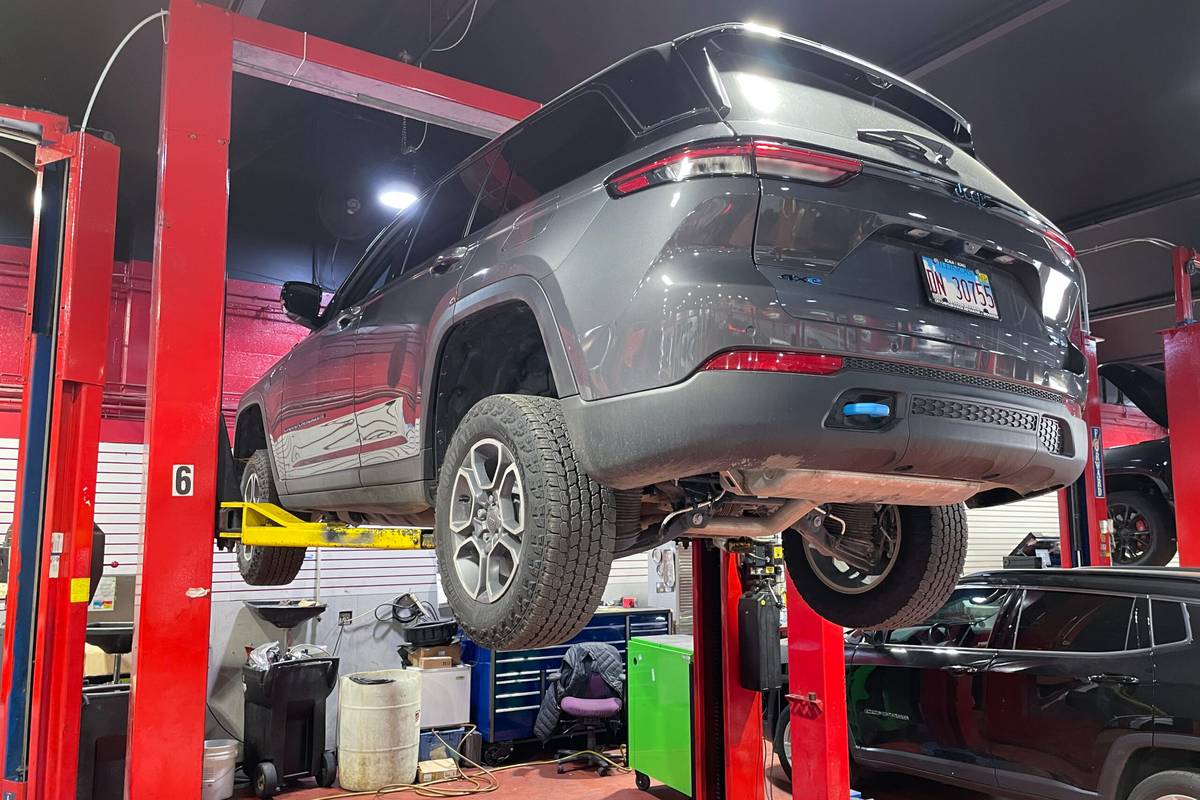2024 J.D. Power Customer Service Index Study: Dealer Satisfaction Improved

Buying a new car is like planning a wedding: stressful and expensive — and distracting from the day-to-day changes that are about to become your new normal. Data analytics firm J.D. Power tries to help car shoppers establish expectations prior to purchase with its Initial Quality Survey and also provides a preview of the ownership experience with its Customer Service Index Study, which tracks owner satisfaction with the dealer service experience. After recording its first dip in 28 years in the 2023 study, the agency says customer satisfaction with dealership service logged a 5-point increase for 2024.
Related: Study: These 3-Year-Old Cars Are the Most Dependable
Scores for the 2024 study were tallied from 64,781 owners and lessees of 1-to-3-year-old vehicles. Survey respondents score their experience in five categories weighted to calculate the final score: service quality (32%), service advisor (19%), vehicle pickup (19%), service facility (15%) and service initiation (15%). Better is always, well, better, but as a percentage, a 5-point increase on a 1,000-point scale (up to 851) is similar to the amount your hair will grow today if it’s currently 2 inches long.
In fact, that increase in satisfaction may be a sign that vehicle owners are adjusting to their own new normal. Chris Sutton, vice president of automotive retail at J.D. Power, said, “It’s encouraging to see an improvement in service satisfaction, but unfortunately, the capacity and wait time issues have gotten progressively worse since the pandemic and show no immediate signs of easing up.”
Overall Customer Satisfaction Rankings
Recognizing the differing expectations between mainstream buyers and luxury customers, J.D. Power splits results into two categories: mass-market and premium brands.
Premium Brands
This is the third consecutive year Lexus has led the premium segment, which averaged 866. While most brands’ scores increased from 2023 and the rest of the top five all held their rankings, the big movers are Jaguar (leaping from No. 11 to No. 6) and Volvo (free-falling from No. 8 to No. 13).
- Lexus: 897
- Porsche: 894
- Cadillac: 883
- Infiniti: 882
- Acura: 870
- Jaguar: 869
- Alfa Romeo: 867
- BMW: 862
- Mercedes-Benz: 858
- Audi: 854
- Lincoln: 853
- Land Rover: 850
- Volvo: 849
- Genesis: 812
Mass-Market Brands
Things are more chaotic in the mass-market segment, where the average was 848 and Buick gained 20 points over 2023 to finish atop the rankings just ahead of Mini, which gained 30 points. Mitsubishi was the only top-five mass-market brand to lose points relative to 2023 among widespread increases that closed the gap in average satisfaction between mass-market and premium brands.
- Buick: 887
- Mini: 884
- Subaru: 877
- Mitsubishi: 875
- Honda: 863
- Chevrolet: 861
- Mazda: 861
- Nissan: 860
- GMC: 852
- Toyota: 851
- Kia: 838
- Jeep: 837
- Ford: 835
- Dodge: 833
- Chrysler: 825
- Hyundai: 819
- Volkswagen: 819
- Ram: 810
Longer Wait Times and More Money

Among the findings from the 2024 study, J.D. Power noted wait times for a service appointment are higher across the board than they were before the pandemic. Owners of mass-market vehicles wait an average of 5.2 days for a dealer appointment, while premium-segment owners wait 5.4 days. Those results are slightly longer than 2023’s for mass-market brands and slightly shorter for premium ones. Among the reasons owners choose independent service facilities over franchised dealerships, the ability to get a prompt appointment now surpasses lower costs.
Not only are wait times higher, but so is the average amount spent on service visits. The cost of taking a vehicle in for service has increased 30% over the last two years for both premium and mass-market vehicles, J.D. Power said. Premium-brand owners now pay an average of $380, up $66 from 2023, while mainstream owners’ average of $140 is an increase of $15 year over year.
Regardless of where work is performed, customers seem to appreciate service departments that make use of modern communication methods. Customers are four times as likely to prefer updates via text message than phone calls, and they report increased satisfaction (911 points versus 880) with their service advisors when they receive photos or video to support conclusions drawn during a vehicle inspection.
Sutton also notes that growing electric vehicle sales volume is “[moving] out of the early adopter phase,” a difficult transition for both consumers and service departments. Non-Tesla EV owners rated dealer trust an average of 5.62 on a 7-point scale, compared to 5.74 for owners of plug-in hybrids and 6.00 for owners of internal combustion vehicles. Certainly not helping the situation is the fact that non-Tesla EVs were recalled more than twice as often as gas-powered vehicles. EV owners also reported the lowest satisfaction with recall repairs — 782 compared to 832 for gas-powered vehicles, 831 for diesels, and 827 for hybrids.
More From Cars.com:
- BMW i4, Mini Cooper SE Hardtop Top 2024 J.D. Power EV Owner Satisfaction Survey
- 2023 J.D. Power U.S. Tech Experience Index Study: Hyundai, Genesis Continue to Lead
- J.D. Power Study Finds EV Owners’ Satisfaction With Public Charging Slipping
- 2023 J.D. Power Initial Quality Survey: New Vehicle Problems Set New Record, Breaking the Previous One from Last Year
- Find Your Next Car
Rankings by Segment
Mass-Market Cars
In the mass-market car segment, where the average was 850, every brand gained points and the top-scoring brands shuffled around, but Mini’s 38-point increase vaulted it from eighth to first.
- Mini: 877
- Subaru: 874
- Mazda: 867
- Chevrolet: 865
- Nissan: 864
- Honda: 863
- Dodge: 849
- Kia: 847
- Toyota: 844
- Volkswagen: 839
- Hyundai: 829
Premium Cars
Despite the brand’s overall lead, a 10-point slip in satisfaction with its cars caused Lexus to drop from first to third among premium brands, which averaged 874, while Porsche matched Infiniti’s 22-point gain to hold its 2-point lead and capture the top spot. BMW might deserve an award for consistency, scoring the same 877 points as it did in 2023, but Cadillac’s 18-point gain allowed it to pull ahead of the Bavarian automaker.
- Porsche: 902
- Infiniti: 900
- Lexus: 892
- Cadillac: 883
- BMW: 877
- Acura: 869
- Audi: 864
- Mercedes-Benz: 863
- Volvo: 859
- Genesis: 825
Mass-Market SUVs/Minivans
Other than Buick catapulting to the top of the SUV and minivan rankings, which averaged 850, the big surprises in this segment are the few brands whose scores dropped from 2023. Mazda tumbled 12 points, falling from second to seventh, while Volkswagen lost 20 points but just two spots (down to No. 13). Smaller decreases also sent GMC (2-point drop), Kia (1 point) and Hyundai (4 points) sliding down the ladder.
- Buick: 887
- Mitsubishi: 877
- Subaru: 877
- Chevrolet: 863
- GMC: 863
- Honda: 863
- Mazda: 860
- Nissan: 854
- Toyota: 854
- Ford: 845
- Jeep: 837
- Kia: 834
- Volkswagen: 817
- Hyundai: 814
Premium SUVs
Lexus holds its spot atop the premium SUV rankings, which averaged 863, for the second consecutive year, while Porsche nudged out Cadillac, with which it was tied for second in 2023.
- Lexus: 898
- Porsche: 889
- Cadillac: 882
- Infiniti: 877
- Acura: 870
- Jaguar: 862
- BMW: 855
- Mercedes-Benz: 855
- Lincoln: 853
- Audi: 850
- Land Rover: 850
- Volvo: 848
- Genesis: 806
Pickup Trucks
Sales volume having little to do with dealer satisfaction, apparently, Nissan leads the truck category for the second straight year, which averaged 843.
- Nissan: 873
- Chevrolet: 856
- Toyota: 855
- GMC: 843
- Ford: 827
- Ram: 810
Related Video:
Cars.com’s Editorial department is your source for automotive news and reviews. In line with Cars.com’s long-standing ethics policy, editors and reviewers don’t accept gifts or free trips from automakers. The Editorial department is independent of Cars.com’s advertising, sales and sponsored content departments.
Featured stories




